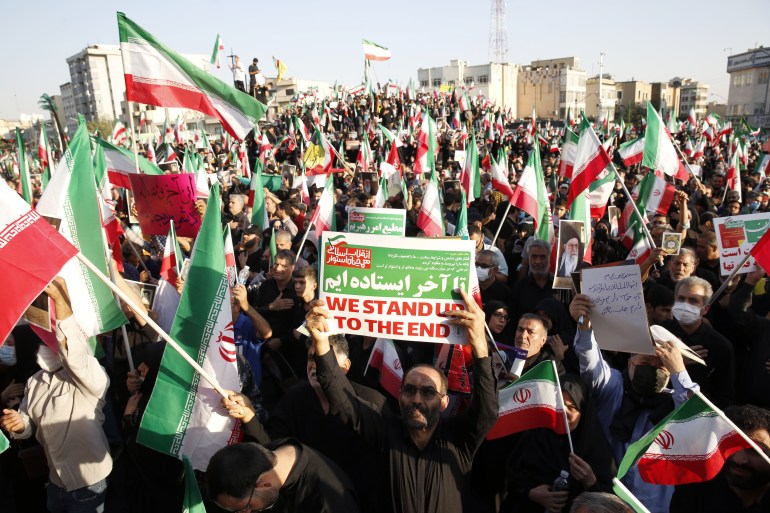Intro: Only a few outlets, like Al Jazeera and The Intercept, could be bothered to dig behind the claims to discover the announcement didn’t actually accomplish much of anything real.
Musk’s Pledge To Bring Starlink To Iran Didn’t Actually Do Anything. That Didn’t Stop The Hype Machine.
from the sound-and-fury,-signifying-nothing dept
"Despite Elon Musk’s disdain for the press, his legend wouldn’t exist without the media’s need to hyperventilate over every last thing that comes out of the billionaire’s mouth. We’re at the point where the dumbest offhand comment by Musk becomes its own three week news cycle (see the entire news cycle based on Musk’s comments on a baseless story about somebody cheating at chess with anal beads).
Of course it’s even worse if Musk says something that actually sounds important. Like when Musk recently proclaimed he’d be offering Starlink satellite broadband service in Iran in a heroic bid to help protesting Iranians avoid government surveillance and censorship. It was literally a two word tweet, but the claim, as usual, resulted in lots of ass kissing and a week long news cycle about how Musk was heroically helping Iranians.
Iran quickly banned the Starlink website, and the only way actual Iranians would be able to use the service is if somebody smuggled Starlink dishes (aka “terminals”) into the country in the middle of a massive wave of violent unrest, something that’s likely impossible at any real scale. There’s also the issue of no ground stations tying connectivity together in Iran:
So even if Musk wanted to offer struggling Iranians broadband access they’re extremely unlikely to be able to get dishes. And even if they could get dishes, they probably couldn’t use them because the necessary infrastructure wasn’t in place. Of course Musk knew this. But Musk also knows that any random bullshit that comes out of his mouth creates several weeks of free press because the ad-based U.S. press has steadily devolved into a billionaire-coddling bullshit clickbait and controversy machine.
The Intercept found it didn’t take much for large swaths of the Internet to believe that the billionaire had dramatically changed things in Iran with a tweet. Musk fandom is often a fan fiction based community, where truth is fairly negotiable:
Implausibility hasn’t stopped Musk’s fans, either. One tweet from a senior fellow at the Atlantic Council purporting to document a Starlink dish already successfully secreted into Iran turned out to be a photo from 2020, belonging to an Idaho man who happened to have a Persian rug.
That’s not to say that Starlink can’t help people in countries where emergency connectivity is needed, such as in Ukraine. Or rural Kentucky (assuming they can afford the $710 first month bill). But it is to say that turning your brain off every single time Elon Musk opens his mouth because you’ve convinced yourself he’s some kind of deity is violently annoying to people still living in reality.
And while Musk loves to whine and cry about the unfairness of the press, his legend literally wouldn’t exist without the endless supply of clickbait-seeking editors who are completely uninterested in the actual truth behind any and every claim the man makes, whether it’s the capabilities of “full self driving” or Starlink’s potential."
Filed Under: censorship, elon musk, high speed internet, hype, iran, satellite, starlink
Companies: spacex, starlink
✓ ALJAZEERA - There have been 10 nights of protests so far, which began after a 22-year-old Kurdish woman Mahsa Amini died in the custody of Iran’s morality police after being arrested for allegedly falling foul of the country’s conservative Muslim dress code.
Why Elon Musk’s Starlink will not affect protests in Iran
So far the only effect of Starlink’s ‘activation’ has been indirectly helping spread malware on Iranian devices

Tehran, Iran – “Activating Starlink.”
"That is how billionaire Elon Musk generated headlines last week as he often does, in a few terse words on Twitter. This time, he was referring to the ongoing protests in Iran.
Keep reading
list of 4 itemsElon Musk greenlit to activate Starlink internet for Iranians
Iran’s pro-government counter-protesters try to change narrative
Iran pledges ‘decisive action’ as Mahsa Amini protests continue
Police clash with Iran protesters in London and Paris
He was making a promise to allow Iranians affected by state-imposed internet restrictions to use his satellite internet network operated by SpaceX. And the United States government said it would support his efforts by easing its sanctions on Iran by promoting the free use of the internet and issuing the necessary permits to make the process work.
But while bringing the internet to Iran via a satellite link is not out of the question, a set of serious challenges make it highly improbable, at least in the short term.
There have been 10 nights of protests so far, which began after a 22-year-old Kurdish woman Mahsa Amini died in the custody of Iran’s morality police after being arrested for allegedly falling foul of the country’s conservative Muslim dress code.
The authorities have not released official tallies, but protests have been recorded in most of Iran’s 31 provinces, and dozens are thought to have been killed with thousands arrested
Senior officials, including President Ebrahim Raisi, and state media have denounced what they have called “riots” as several police officers, security forces, and members of the paramilitary Basij force have been killed, and public property damaged.
There have also been two pro-establishment rallies so far, on Friday and on Sunday, to counter the protests as authorities also blamed “terrorist” groups for trying to work towards secessionist goals.
Citing “security concerns”, authorities have introduced the tightest internet restrictions across Iran since the November 2019 protests..."
^ READ MORE
✓ THE INTERCEPT
No, Elon Musk’s Starlink Probably Won’t Fix Iranian Internet Censorship
The satellite internet technology probably won’t connect Iranian protesters, but Musk already got his PR coup with a two-word tweet.
✓



No comments:
Post a Comment